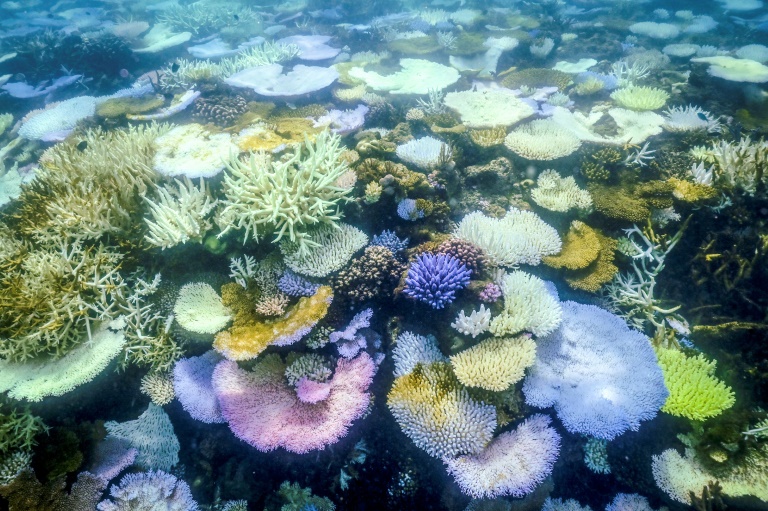Science
Red Sea Corals Struggle to Thrive Amid Rising Ocean Temperatures

Research from Ohio State University has revealed that corals in the Red Sea can survive warming ocean conditions but face significant challenges that hinder their growth and vitality under prolonged heat stress. This study underscores the detrimental effects of climate change on marine ecosystems, particularly coral reefs, which are essential for biodiversity and human livelihoods.
The focus of the study was on a species known as Stylophora pistillata, commonly referred to as hood coral or smooth cauliflower coral. This species is particularly notable for its resilience to high temperatures, yet the findings indicate that sustained exposure to elevated temperatures may drastically impact its health and reproductive capacity.
Findings on Coral Resilience and Growth
By simulating six months of increased ocean temperatures, the researchers observed that while S. pistillata could survive in waters reaching 27.5 degrees Celsius and 30 degrees Celsius—conditions projected for tropical oceans by 2050 and 2100—the corals did not thrive. Those exposed to 27.5 degrees Celsius were found to be approximately 30% smaller than a control group, while those in the hotter 30 degrees Celsius environment were a staggering 70% smaller.
Lead researcher Ann Marie Hulver expressed concern about these results. She stated, “In theory, if corals in the wild at these temperatures are smaller, reefs might not be as diverse and may not be able to support as much marine life. This could have adverse effects on people that depend on the reef for tourism, fishing, or food.”
The Broader Implications of Warming Seas
The data suggests that even the most thermally tolerant coral species are at risk due to rising ocean temperatures. The study paints a clearer picture of the potential future for coral reefs, which may face a temperature increase of up to 3 degrees Celsius by 2100. Predicting how these ecosystems will adapt to such changes presents a significant challenge for scientists.
Understanding the impact of warmer waters on coral growth and feeding behaviors is crucial for informing long-term conservation strategies. The researchers aim to leverage their findings to improve efforts in protecting vulnerable marine habitats.
The detailed results of this research are published in the journal Science of the Total Environment under the title “Thermally resistant coral Stylophora pistillata survives but does not thrive under chronic elevated baseline temperature.” As climate change continues to pose threats to global ecosystems, studies like this highlight the urgent need for action to mitigate its effects on marine life.
-

 Science3 months ago
Science3 months agoToyoake City Proposes Daily Two-Hour Smartphone Use Limit
-

 Top Stories3 months ago
Top Stories3 months agoPedestrian Fatally Injured in Esquimalt Collision on August 14
-

 Health3 months ago
Health3 months agoB.C. Review Reveals Urgent Need for Rare-Disease Drug Reforms
-

 Technology3 months ago
Technology3 months agoDark Adventure Game “Bye Sweet Carole” Set for October Release
-

 World3 months ago
World3 months agoJimmy Lai’s Defense Challenges Charges Under National Security Law
-

 Lifestyle3 months ago
Lifestyle3 months agoVictoria’s Pop-Up Shop Shines Light on B.C.’s Wolf Cull
-

 Technology3 months ago
Technology3 months agoKonami Revives Iconic Metal Gear Solid Delta Ahead of Release
-

 Technology3 months ago
Technology3 months agoApple Expands Self-Service Repair Program to Canada
-

 Technology3 months ago
Technology3 months agoSnapmaker U1 Color 3D Printer Redefines Speed and Sustainability
-

 Technology3 months ago
Technology3 months agoAION Folding Knife: Redefining EDC Design with Premium Materials
-

 Business3 months ago
Business3 months agoGordon Murray Automotive Unveils S1 LM and Le Mans GTR at Monterey
-

 Technology3 months ago
Technology3 months agoSolve Today’s Wordle Challenge: Hints and Answer for August 19









